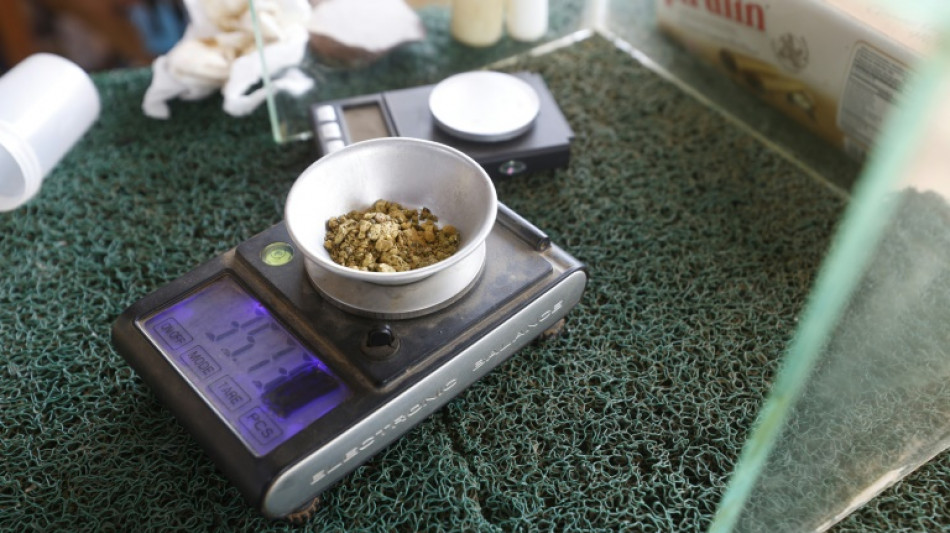
-
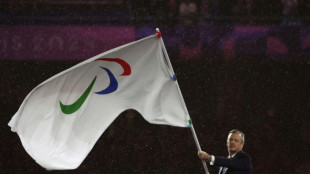 International Paralympic Committee lifts partial suspensions of Russia, Belarus
International Paralympic Committee lifts partial suspensions of Russia, Belarus
-
All Blacks hold off Wallabies to extend remarkable Eden Park record

-
 After Armani, Italian fashion houses are in flux
After Armani, Italian fashion houses are in flux
-
Marc Marquez on brink of MotoGP title as Bagnaia wins Japan sprint

-
 In-form Swiatek cruises past wildcard to start China Open title bid
In-form Swiatek cruises past wildcard to start China Open title bid
-
Protesters demand answers 11 years after Mexican students vanished
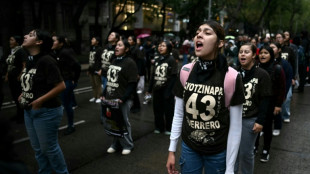
-
 Paris Fashion Week to showcase industry makeover with string of debuts
Paris Fashion Week to showcase industry makeover with string of debuts
-
'Snapback': What sanctions will be reimposed on Iran?
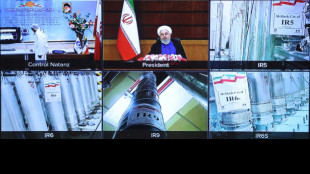
-
 UN sanctions on Iran set to return as nuclear diplomacy fades
UN sanctions on Iran set to return as nuclear diplomacy fades
-
King Charles III to visit Vatican in October

-
 Marc Marquez third on grid at Japan MotoGP as Bagnaia takes pole
Marc Marquez third on grid at Japan MotoGP as Bagnaia takes pole
-
Philippines death toll rises to 11 as storm Bualoi bears down on Vietnam

-
 Donald excited Europe handled raucous crowd well at Ryder Cup
Donald excited Europe handled raucous crowd well at Ryder Cup
-
Goals, guns and narcos: Hitmen plague Ecuador's beautiful game

-
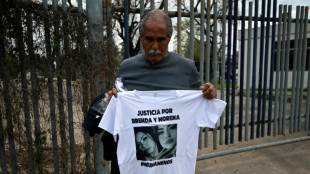 Argentine victims of live-streamed murder laid to rest on eve of protest
Argentine victims of live-streamed murder laid to rest on eve of protest
-
No USA Ryder Cup panic as fightback enters Bradley's plan

-
 USA turns to Scheffler, DeChambeau in Saturday foursomes
USA turns to Scheffler, DeChambeau in Saturday foursomes
-
Trump can't spark US comeback in visit to Ryder Cup

-
 Trump urges Microsoft to fire ex-Biden administration official
Trump urges Microsoft to fire ex-Biden administration official
-
Europe takes three-point Ryder Cup lead as US gets no Trump boost

-
 Three talking points ahead of the Women's Rugby World Cup final
Three talking points ahead of the Women's Rugby World Cup final
-
Murillo sends Marseille top in Ligue 1 with late win in Strasbourg

-
 Kimmel boycott ends as US TV companies put him back on air
Kimmel boycott ends as US TV companies put him back on air
-
Kane scores twice to reach 100 Bayern goals in record time

-
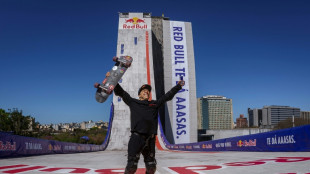 'Almost impossible': Brazilian skater Sandro Dias makes history on mega ramp
'Almost impossible': Brazilian skater Sandro Dias makes history on mega ramp
-
Trump targets more opponents after 'dirty cop' Comey

-
 Sixers' Embiid eyes consistency after injury-plagued NBA season
Sixers' Embiid eyes consistency after injury-plagued NBA season
-
More questions than answers surround Trump's TikTok deal
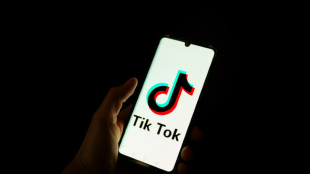
-
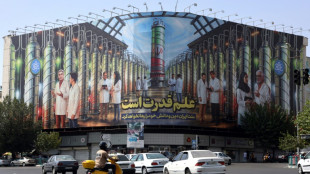 Iran sanctions look set to return as last-ditch UN push fails
Iran sanctions look set to return as last-ditch UN push fails
-
Sitting ducks: Venezuelan fishermen wary of US warships
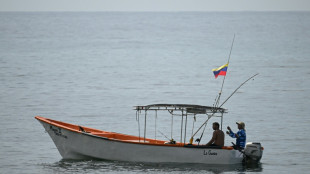
-
 Nissanka ton in vain as India edge Sri Lanka in Super Over
Nissanka ton in vain as India edge Sri Lanka in Super Over
-
An Aussie tycoon bets billions on cleaning up iron ore giant

-
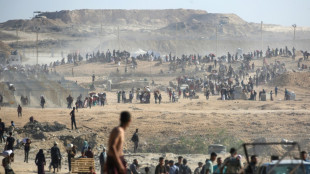 Civil defence says 50 killed in Gaza as Netanyahu vows to 'finish job' against Hamas
Civil defence says 50 killed in Gaza as Netanyahu vows to 'finish job' against Hamas
-
Canada's Corrigan leans on Olympic experience in quest for Women's Rugby World Cup gold

-
 Kolisi warns 'resilient' Boks are braced for Puma mauling
Kolisi warns 'resilient' Boks are braced for Puma mauling
-
Fearing US invasion, Venezuela to hold emergency drills
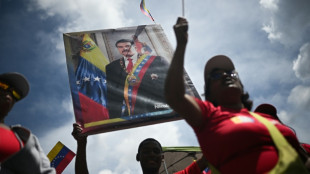
-
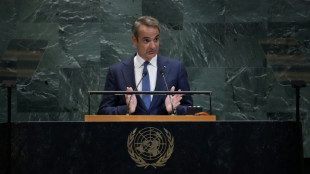 Greek PM warns Israel risks losing friends
Greek PM warns Israel risks losing friends
-
Pakistani PM appeals for India talks, hails Trump role
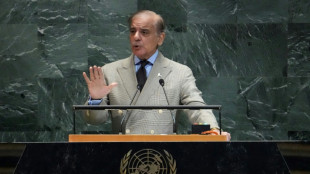
-
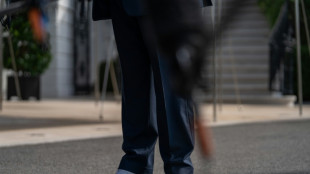 Trump aims to make America great again amid Ryder Cup woes
Trump aims to make America great again amid Ryder Cup woes
-
Trump arrives at Ryder Cup with US seeking comeback

-
 Europe grabs 3-1 lead as US seeks Trump boost at Ryder Cup
Europe grabs 3-1 lead as US seeks Trump boost at Ryder Cup
-
Lufthansa planning thousands of job cuts: sources
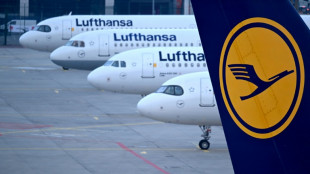
-
 China at UN warns of return to 'Cold War mentality'
China at UN warns of return to 'Cold War mentality'
-
England great Alphonsi expects Canada to shine in Women's Rugby World Cup final

-
 Tottenham reject interest in reported record £4.5bn sale
Tottenham reject interest in reported record £4.5bn sale
-
Man Utd boss Amorim admits uncertainty ahead of Brentford clash

-
 Zverev wins Beijing opener as Gauff launches title defence
Zverev wins Beijing opener as Gauff launches title defence
-
Barca duo Raphinha, Joan Garcia injured, out for PSG clash

-
 Trump hopes more opponents to be charged after 'dirty cop' Comey
Trump hopes more opponents to be charged after 'dirty cop' Comey
-
US Fed's preferred inflation gauge rises, with more cost pressures expected
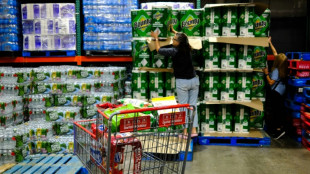

Venezuela's El Dorado, where gold is currency of the poor
In the Venezuelan mining community of El Dorado, the majority of residents carry around gold instead of cards or cash to pay for groceries.
They live in a town named after the mythical City of Gold and untold riches -- but most of them are poor.
Merchants use scales to carefully weigh the flecks people guard in plastic pill bottles or wrapped in pieces of paper, and market goods are priced in weight of gold.
For 0.02 grams, you can get a small packet of maize meal, for one gram a pre-packaged bag of groceries that includes flour, pasta, oil, margarine, ketchup and milk powder.
A gram of gold can purchase between $85 and $100 worth of goods, but takes hours of back-breaking work to amass. If you're in luck.
"Gold is a blessing given to us so we can buy what we want, but you have to work hard," 48-year-old Jose Tobias Tranquini told AFP in the town of 5,000 residents mostly employed in mining -- legal and illegal.
"One day at the mine you might find nothing; there are lucky people who have gotten up to a kilo (2.2 pounds), but... I haven't had that kind of blessing. I've only gotten a little bit," said Tranquini.
El Dorado's residents have limited access to banking services.
They could sell their gold at one of the dozens of dealers that dot the streets, but most prefer not to. Gold -- unlike the battered Venezuelan currency that has lost 50 percent of its value this year -- does not depreciate.
- No gold, no life -
El Dorado arose as a military fort as Britain and Venezuela squared off in 1895 over the mineral- and oil-rich region of Essequibo now at the center of an increasingly heated territorial dispute with Guyana, which has administered it for decades.
The oldest inhabitants of the town remember that when it rained, particles of gold emerged from the town's clay streets.
Nowadays, the streets are tarred, though potholed, and the population rely for transport mainly on motorcycles that zoom noisily to and fro.
Hilda Carrero, a 73-year-old merchant, arrived in Eldorado 50 years go in the midst of a gold rush. The town, she recalls, was just "jungle and snakes... It was ugly."
Carrero sells cans of water for 0.03 grams of gold apiece -- about $1.50 -- but business, like mining hauls, is erratic. Some days she sells nothing.
"If I don't have gold I have no life," Carrero sighed.
It can be hard to make a living in a place where abundant reserves of gold, diamonds, iron, bauxite, quartz and coltan have attracted organized crime and guerrilla groups that mine illegally, and sow violence.
Extortion of small business owners is rife, and 217 people were killed in the four years to 2020 in clashes between rival criminal gangs.
Environmentalists also denounce an "ecocide" in the heavily-exploited area, and mine collapses have claimed dozens of lives.
- Hazardous work -
Around El Dorado, there are numerous camps processing the gold-laden sand that miners dig up daily.
In tall sheds with zinc roofs, mountains of sand are milled in machines that work with modified car engines, then washed in water and toxic mercury to separate the gold from other metals.
Tiny particles almost imperceptible to the naked eye are trapped in a green mat which is shaken out to collect them.
The granules are finally heated with a blowtorch to remove impurities before the gold can be traded or sold.
It is hard work, and hazardous.
"The danger of this is the smoke" produced by the mercury burning off, a mill owner explained while smoking a cigarette.
A family of five working at a mine visited by AFP spent four hours that day processing a ton of sand.
For their efforts: one gram of gold.
"We'll use it to buy food and whatever is needed at the mill," a worker who asked not to be named told AFP as he cupped a tiny grain of gold in coarse hands.
It was a good day.
H.Gerber--VB
